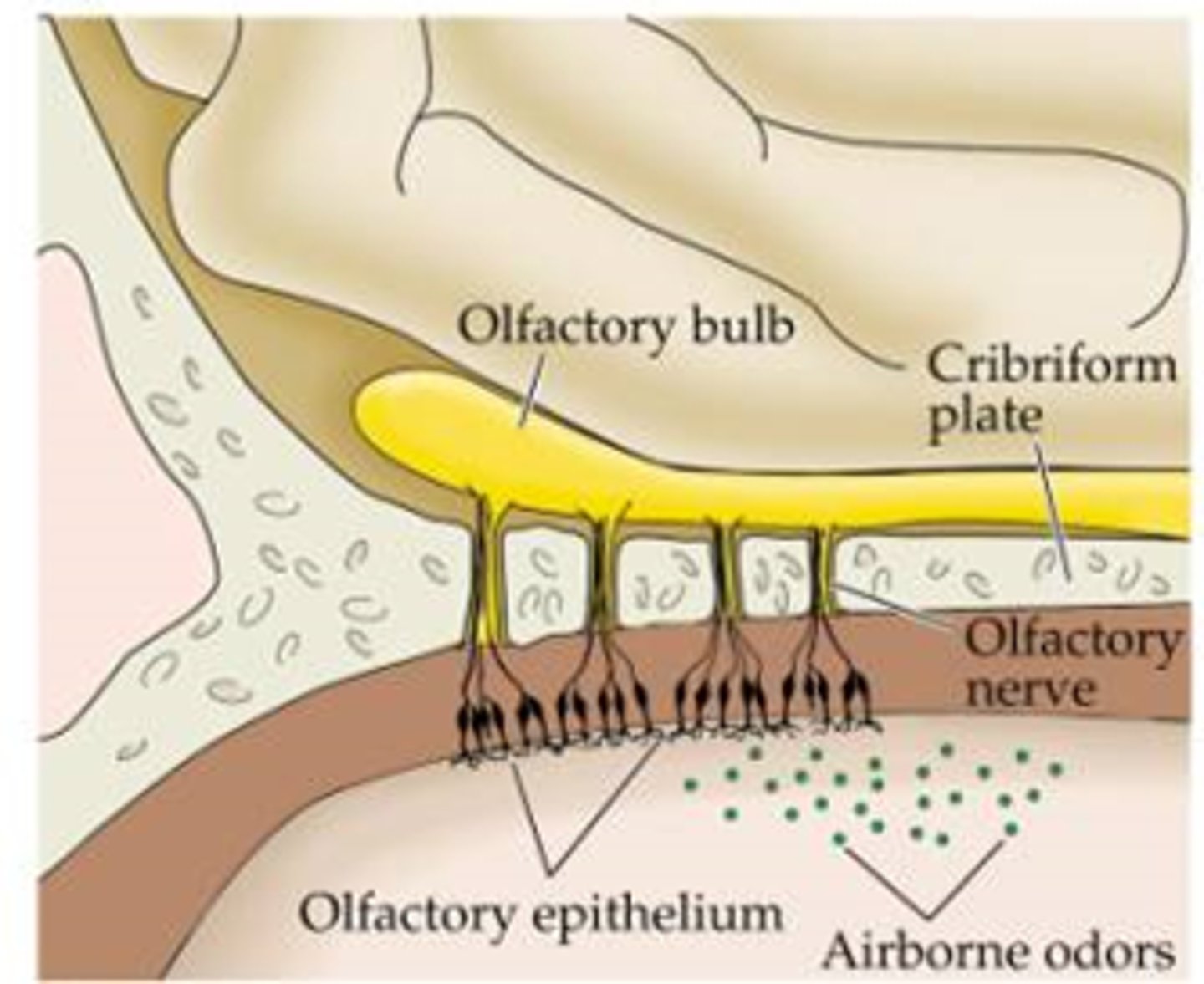BI 232 Lab 2: ANS, general senses, gustation, olfaction
1/43
There's no tags or description
Looks like no tags are added yet.
Name | Mastery | Learn | Test | Matching | Spaced |
|---|
No study sessions yet.
44 Terms
sympathetic nervous system
"fight or flight"
controls many organs all over the body
has sole control over arrector pili muscles, adrenal glands
parasympathetic nervous system
"rest and digest"
controls many organs all over the body
has sole control of lacrimal glands
sympathetic trunk/chain ganglia
Runs along vertebrae, part of the sympathetic nervous system, keeps whole body in sync
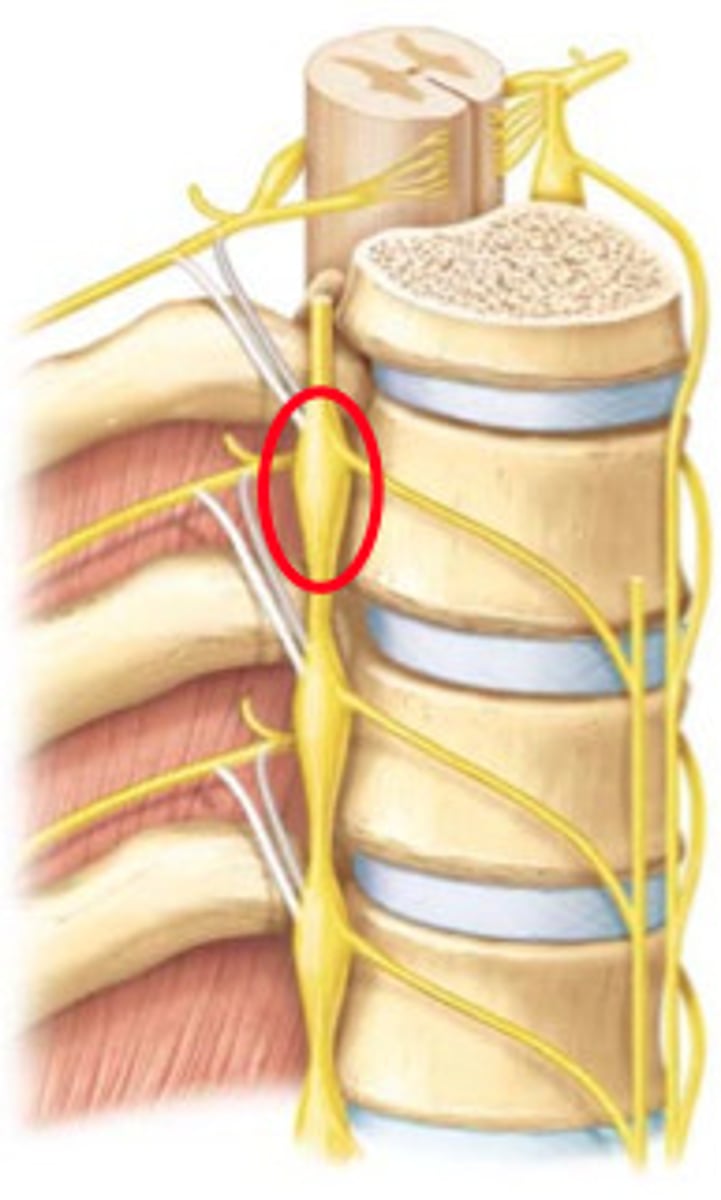
White rami communicans
contain myelinated preganglionic fibers traveling to sympathetic trunk ganglia
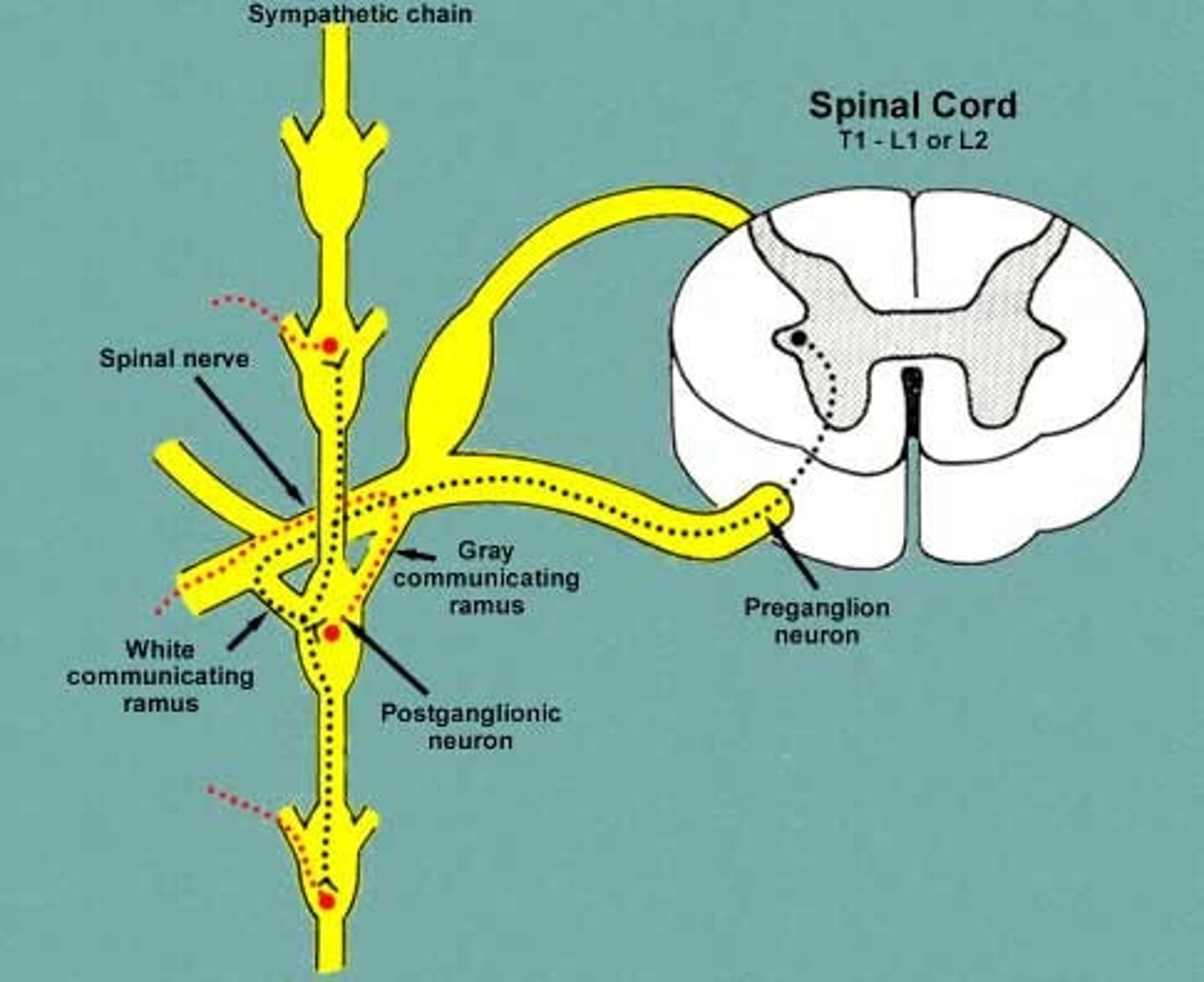
gray rami communicans
contain unmyelinated postganglionic fibers traveling from ganglia to peripheral structures
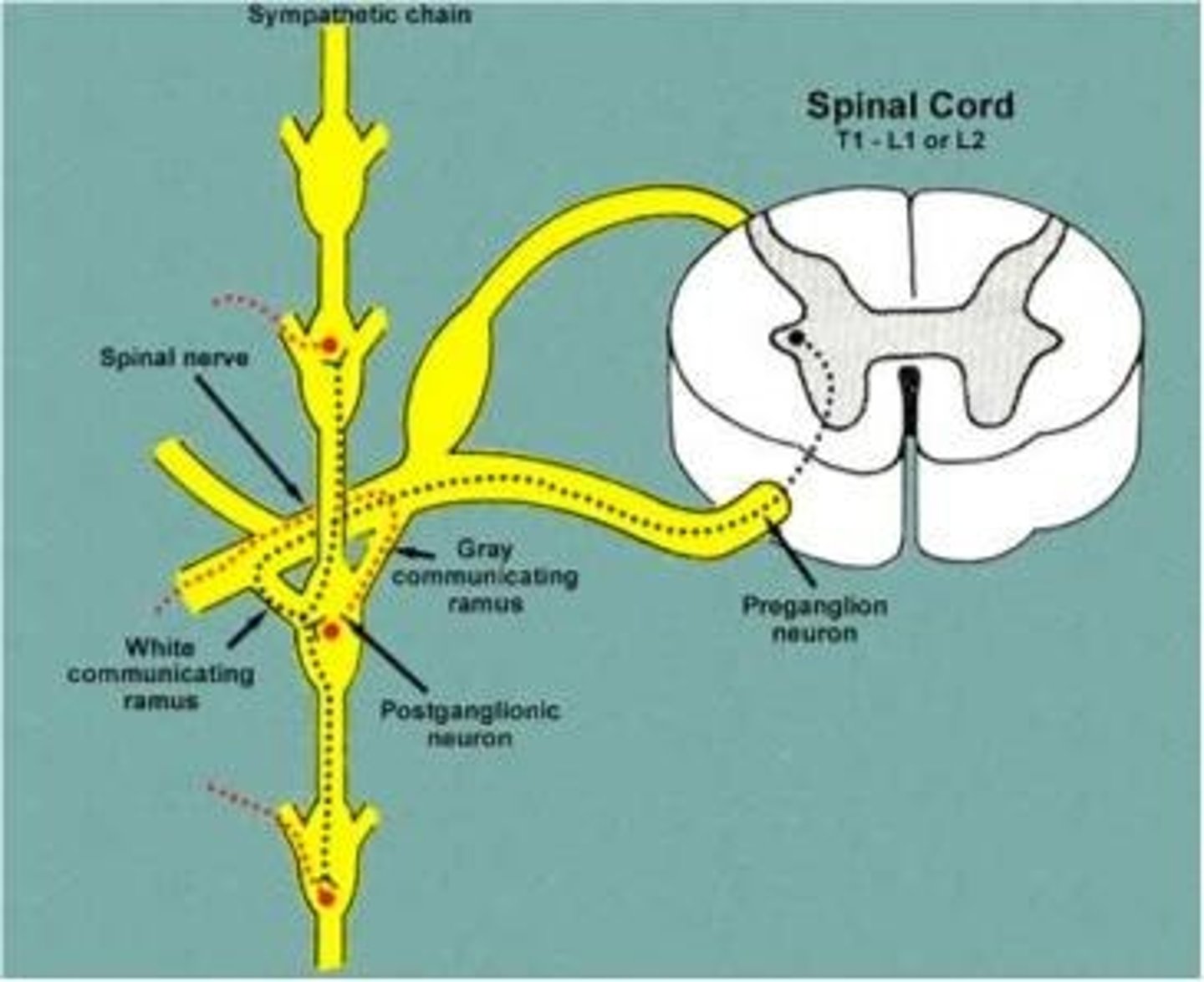
general senses
somatic and visceral senses - temperature, pain, touch, pressure, vibration, proprioception
special senses
sight, hearing, smell, taste, balance
nociceptor
pain receptor (free dendritic ending) - tonic
thermoreceptor
detects heat, changes in temperature, rates of conduction (free dendritic endings)
mechanoreceptors
detect mechanical deformation of cell membranes - pressure, vibration, deep touch
tactile receptors
mechanoreceptors, associated with touch
baroreceptor
a sensory receptor that responds to changes in pressure, monitors blood pressure
proprioceptor
stretch receptor - are joints bent or straight
tactile (merkel) discs
located at the border of dermis/epidermis - detect light touch, free dendritic endings, phasic/fast adapting, concentrated in hands and face
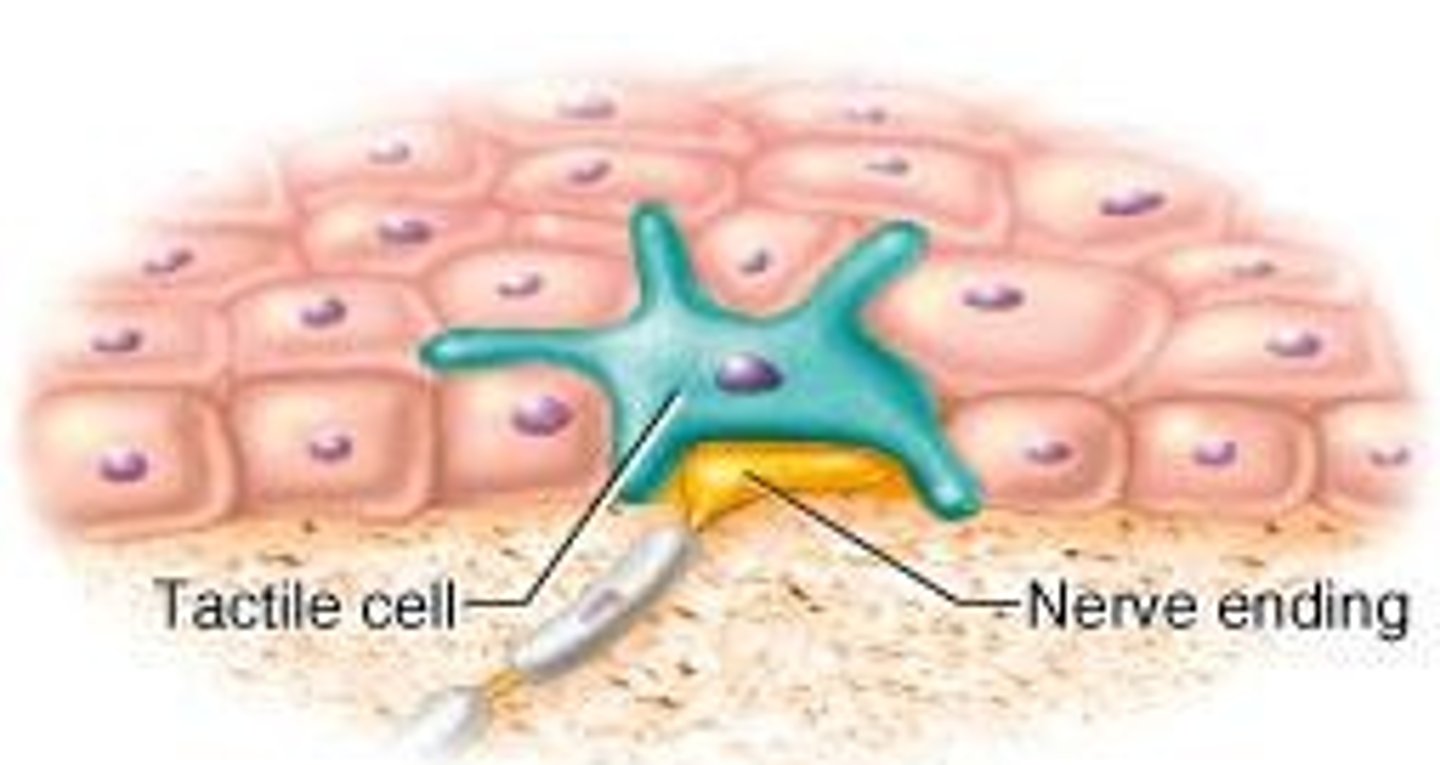
free nerve endings
bare dendrites - pain, temp, tickle, light touch
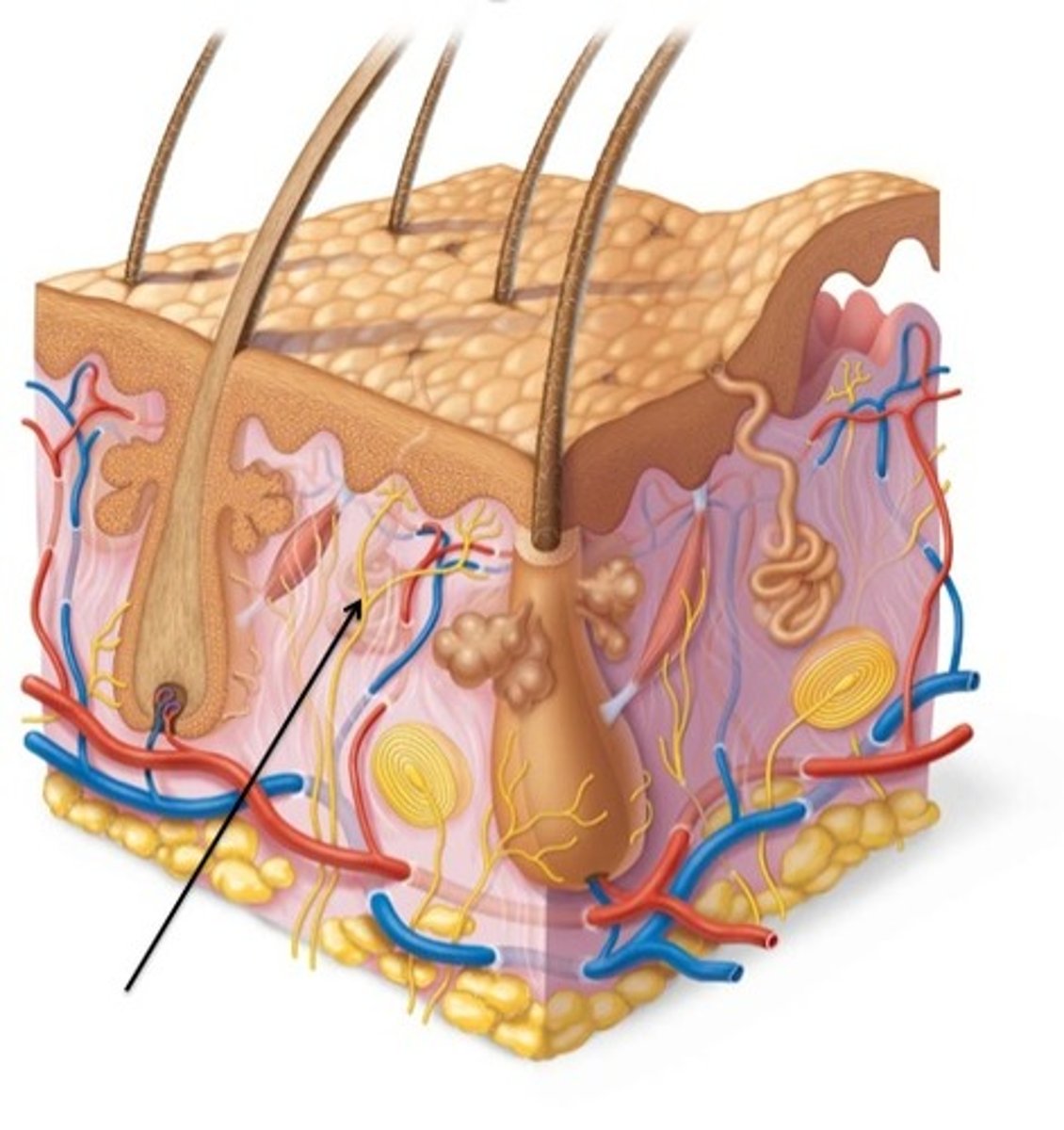
hair root plexus
track/sense hair movement
Free dendritic endings, phasic/fast-adapting, only absent in palms and soles, exteroreceptor
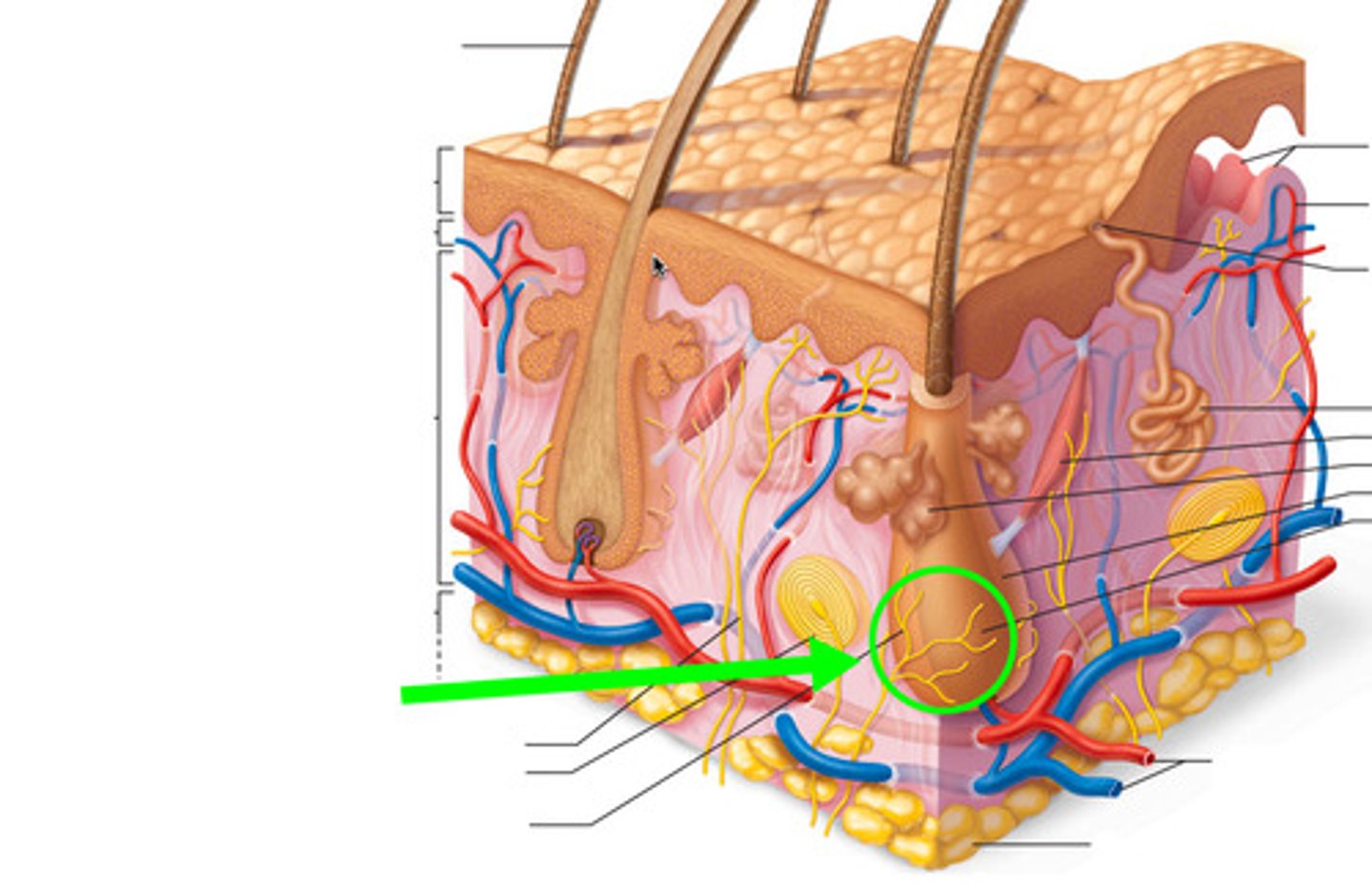
Tactile (Meissner's) corpuscles
in the dermal papillae, detect fine touch, fast adapting/phasic, concentrated in face, fingers, and genitals, exteroreceptor
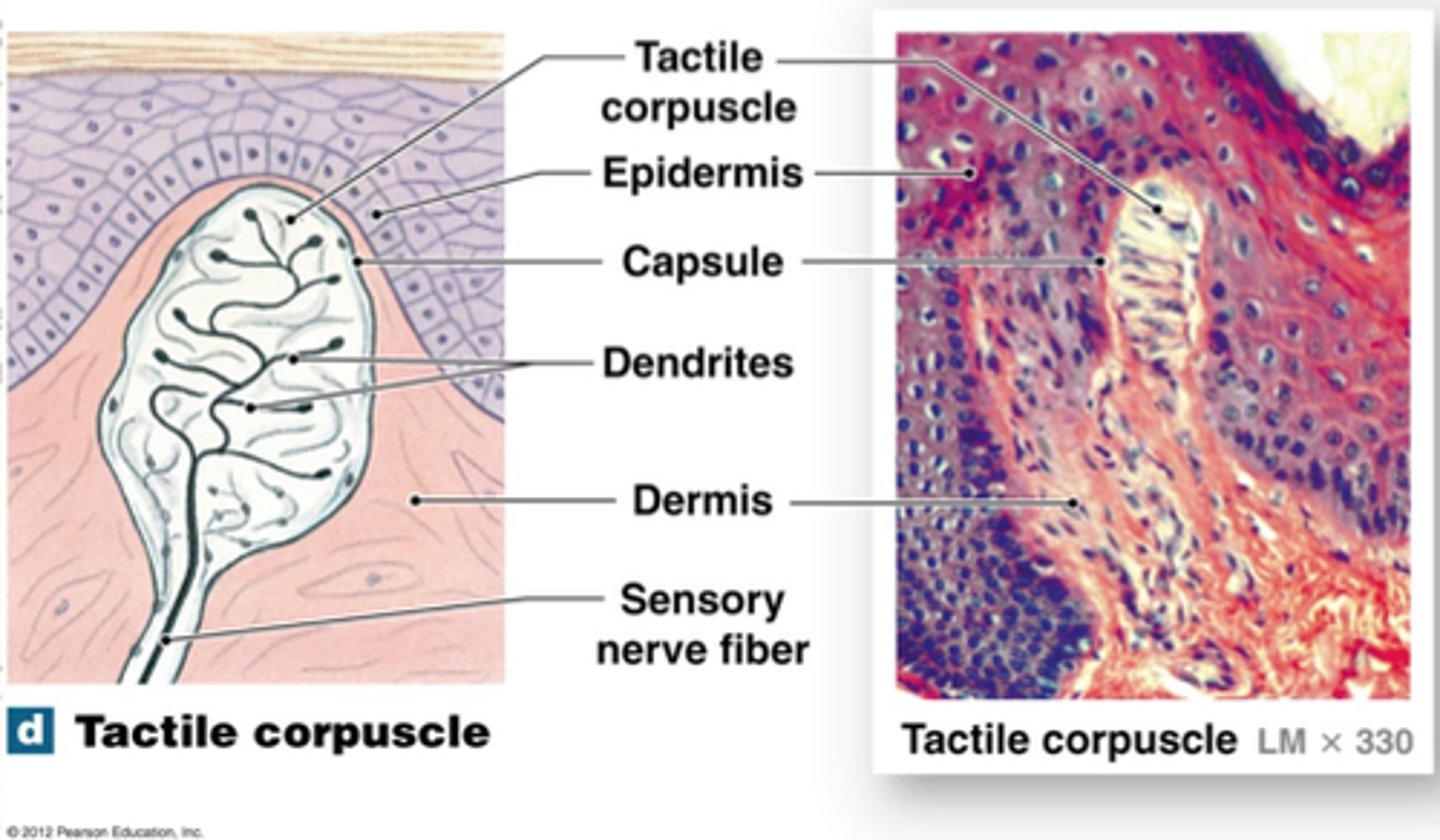
lamellated (pacinian) corpuscles
in dermis, detect deep touch
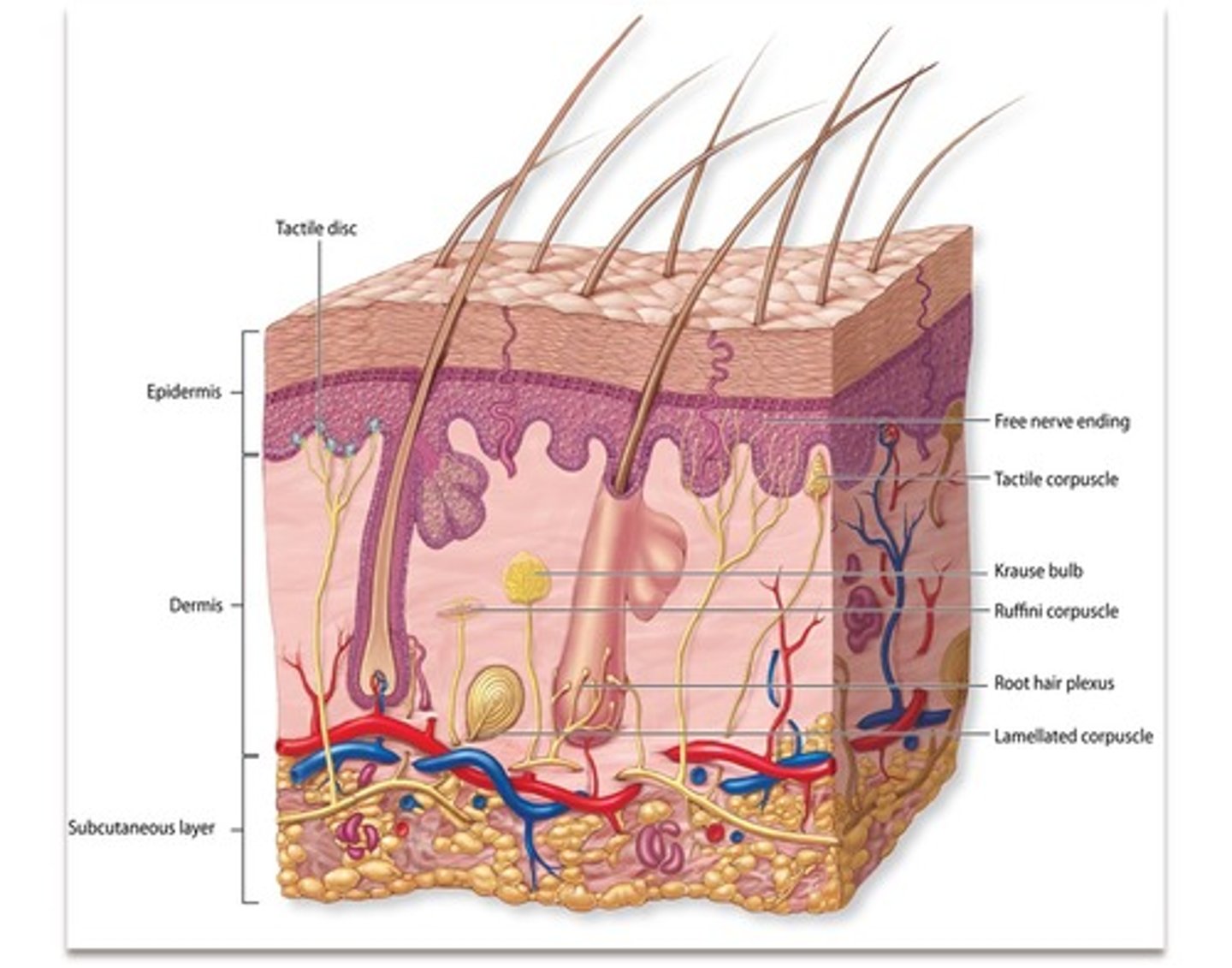
Ruffini's (Bulbous) corpuscles
detect position of joints, heavy/continuous touch, pressure, tonic. Located in deep dermis, all over body.
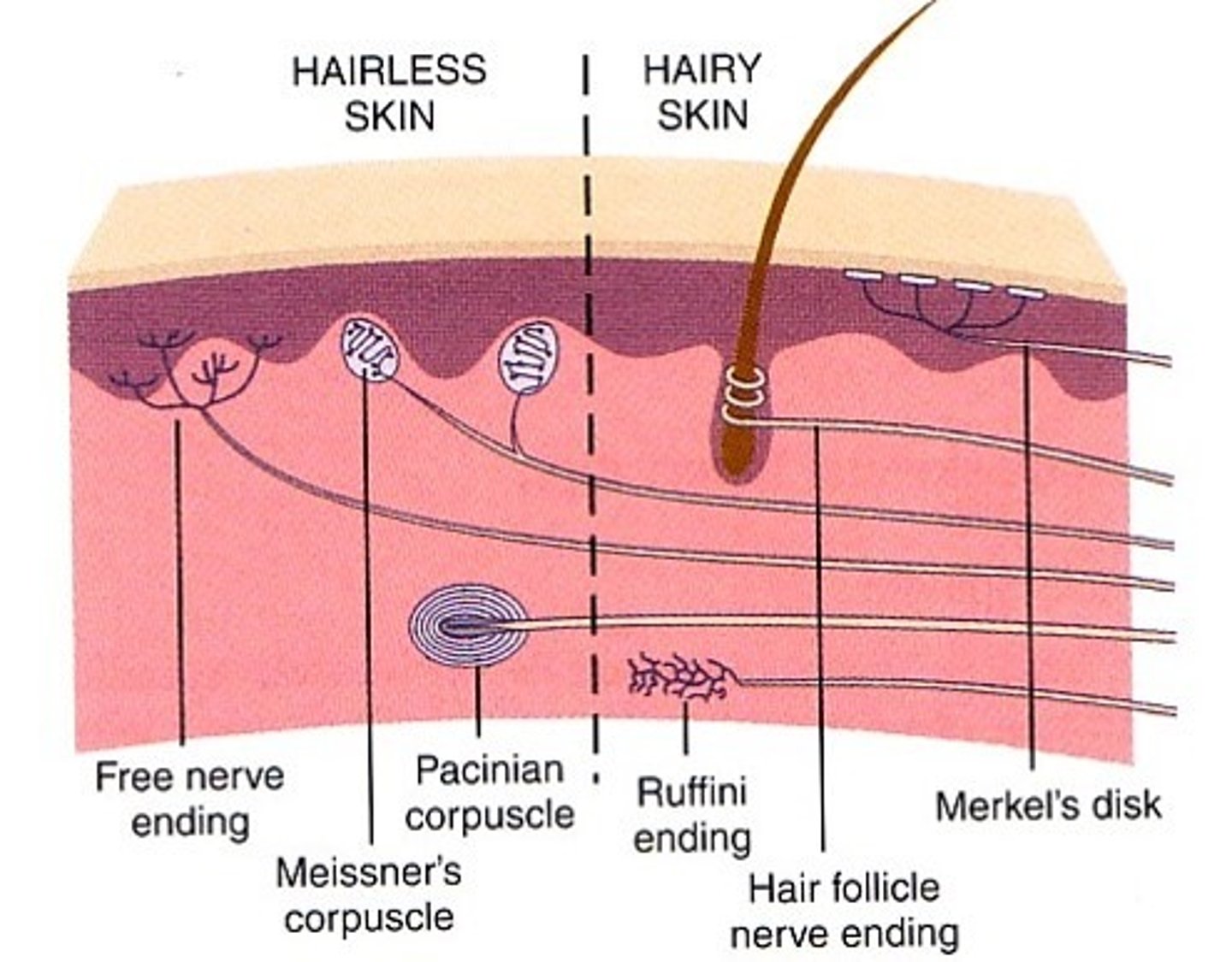
Muscle spindles
Proprioceptors that detect the rate and degree of muscle stretch
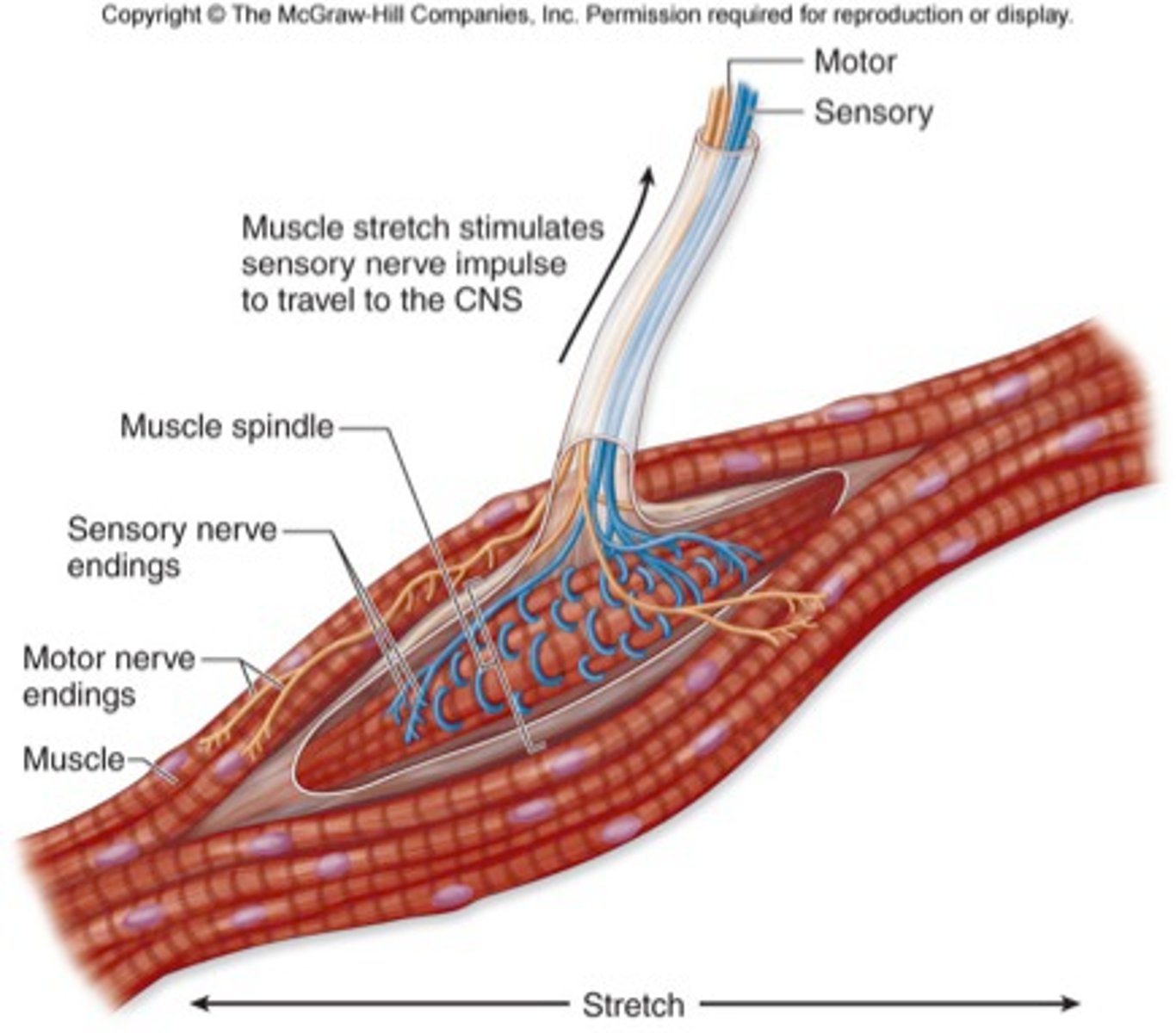
Golgi tendon organ
monitors tension in tendons, found at junction of tendon and muscle, prevents over-stretching/ripping by forcing action of antagonist/forcibly relaxing muscles
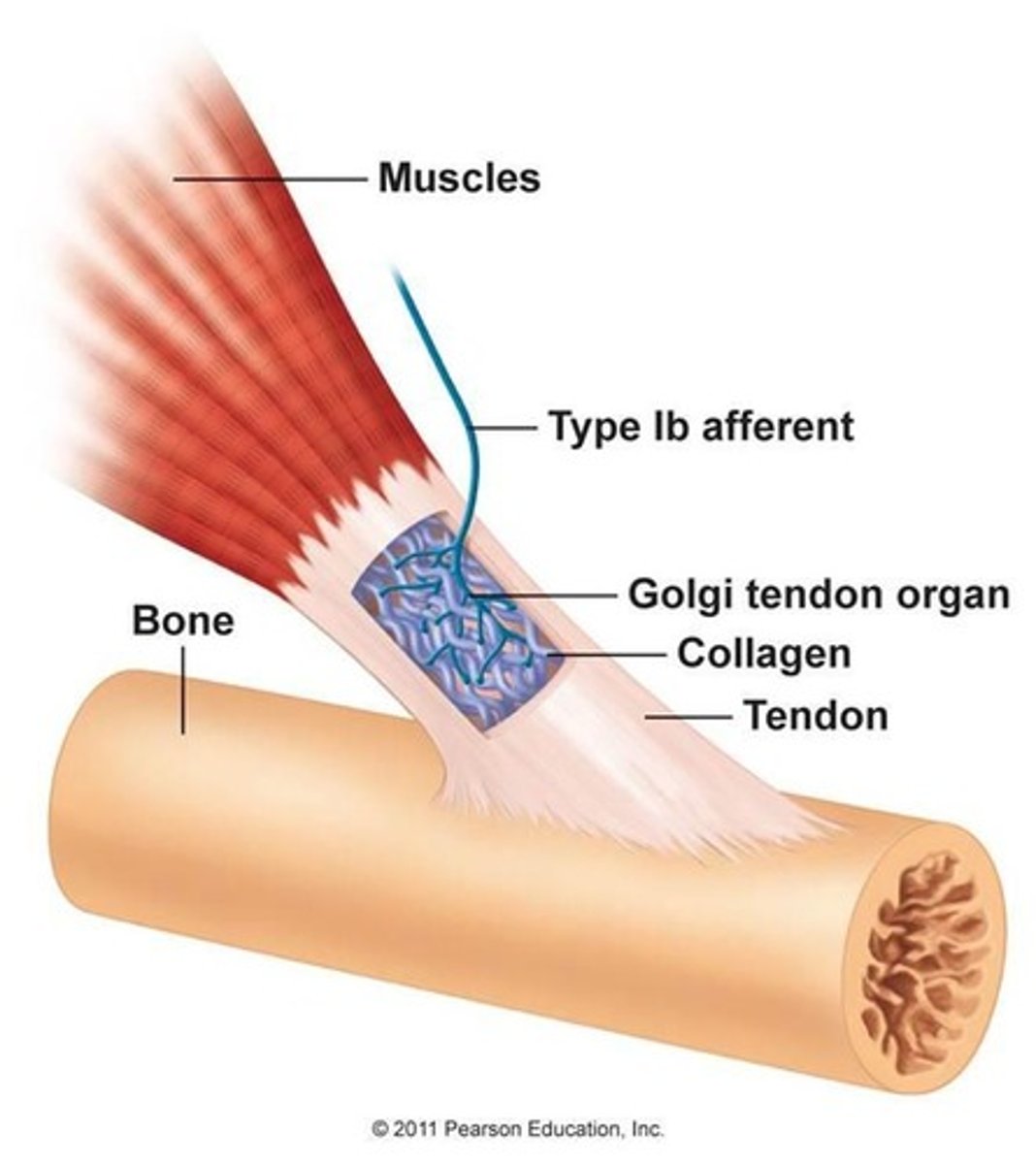
End Bulbs of Krause
encapsulated mechanoreceptor, tonic, found all over the body but highly concentrated in upper lip, responsible for mammalian dive reflex
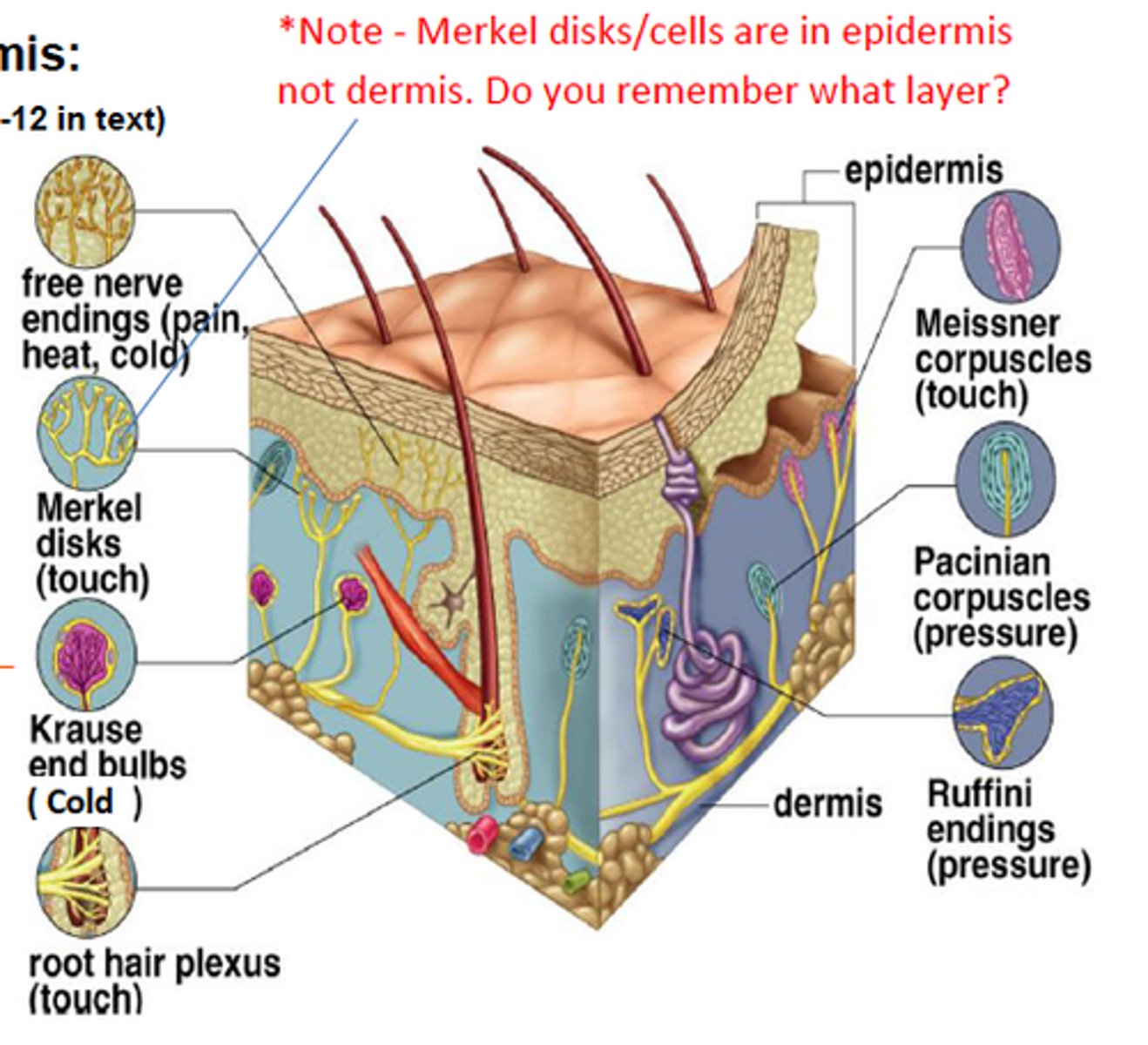
lamellated/pacinian corpuscle
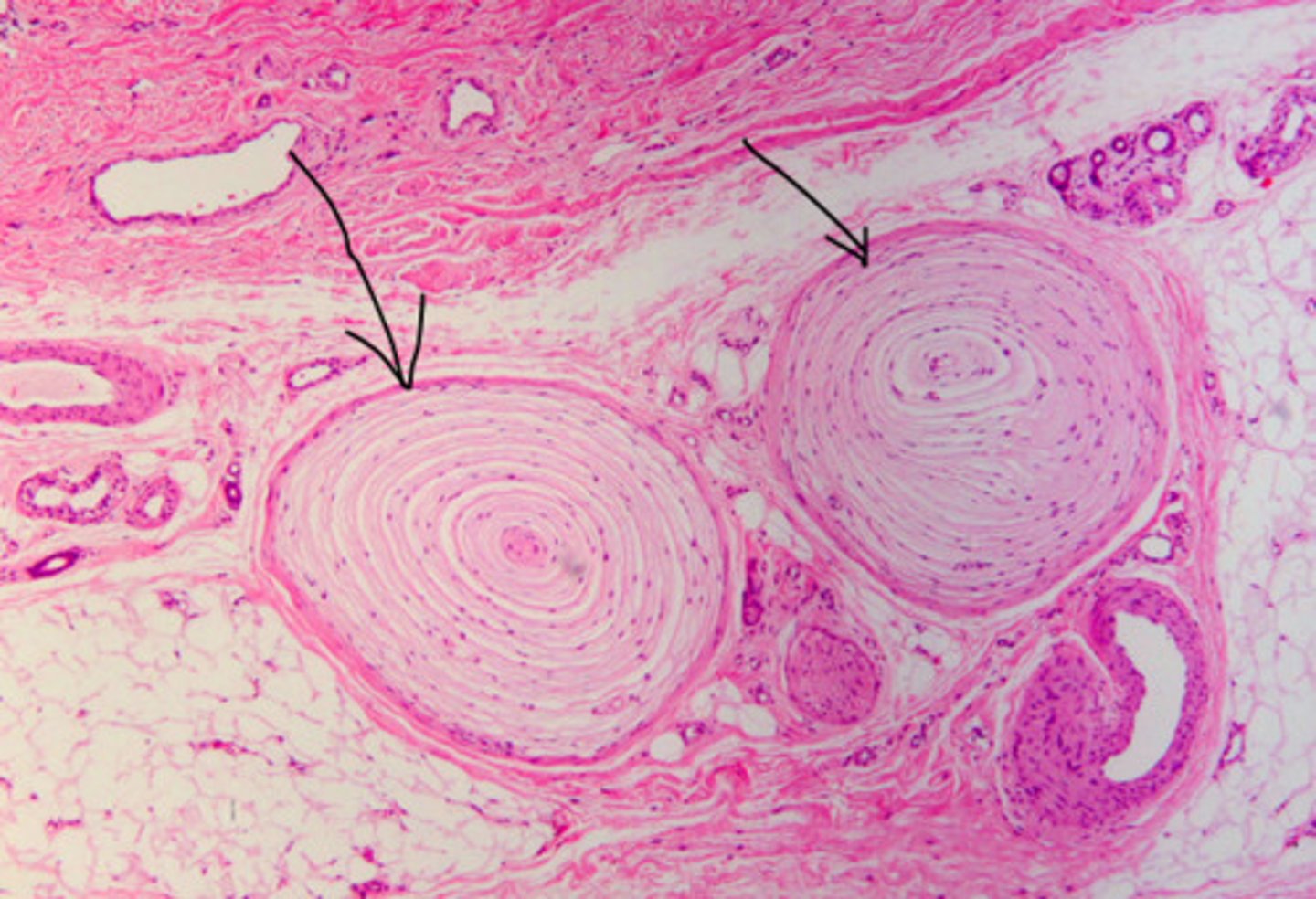
tactile/meissner's corpuscle
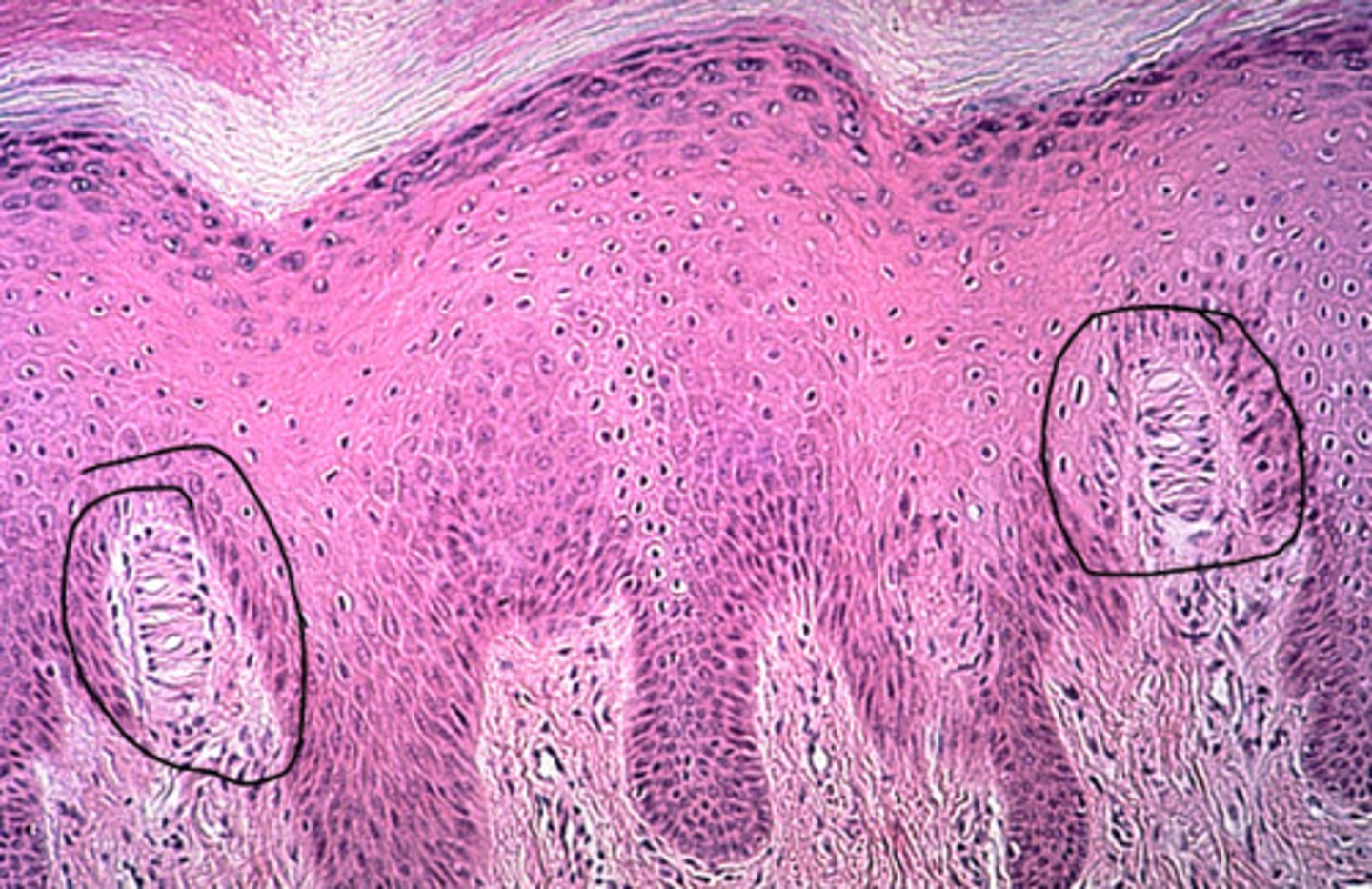
Olfactory (Bowman's) gland
produce the mucous that dissolves odorants to help you smell
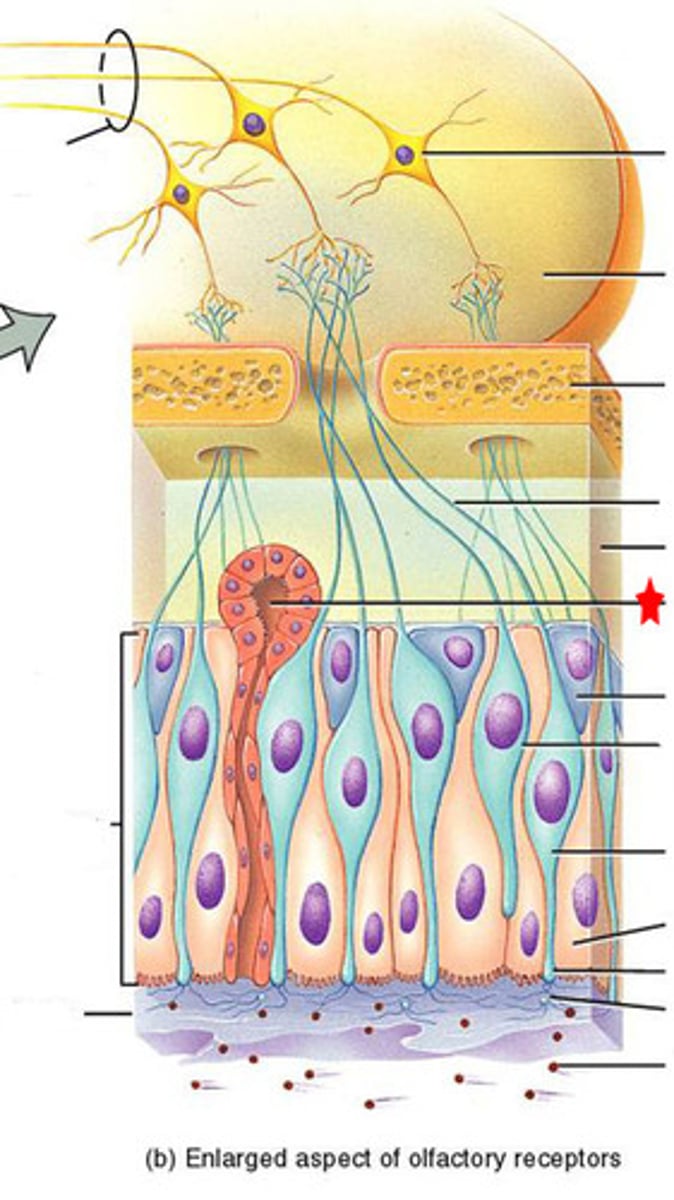
Olfactory neuron (receptor cell)
bipolar, ciliated neurons, contain binding sites for odor molecules, axons pass through cribriform plate, get replaced every 60 days
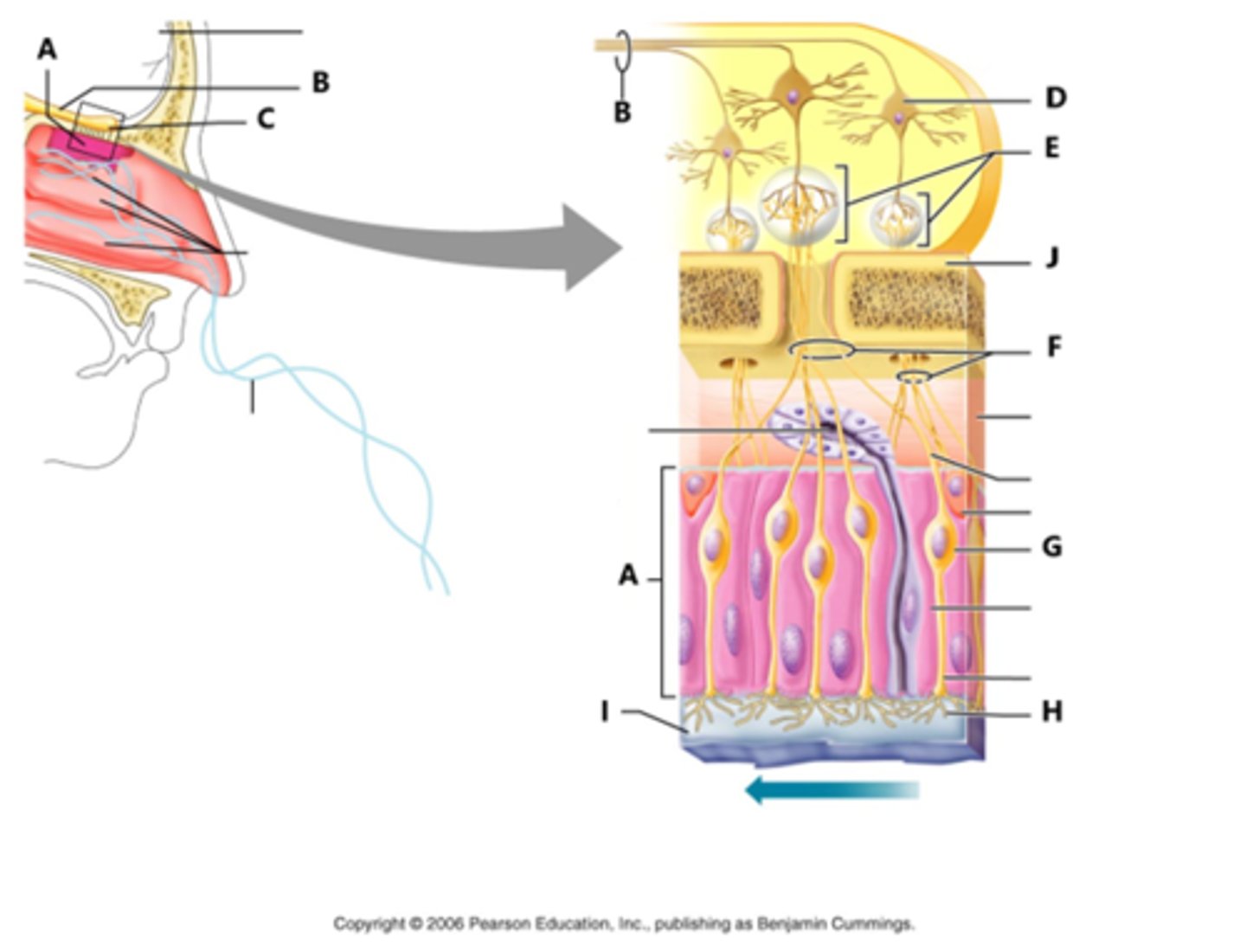
supporting cells (olfaction)
protect olfactory neurons
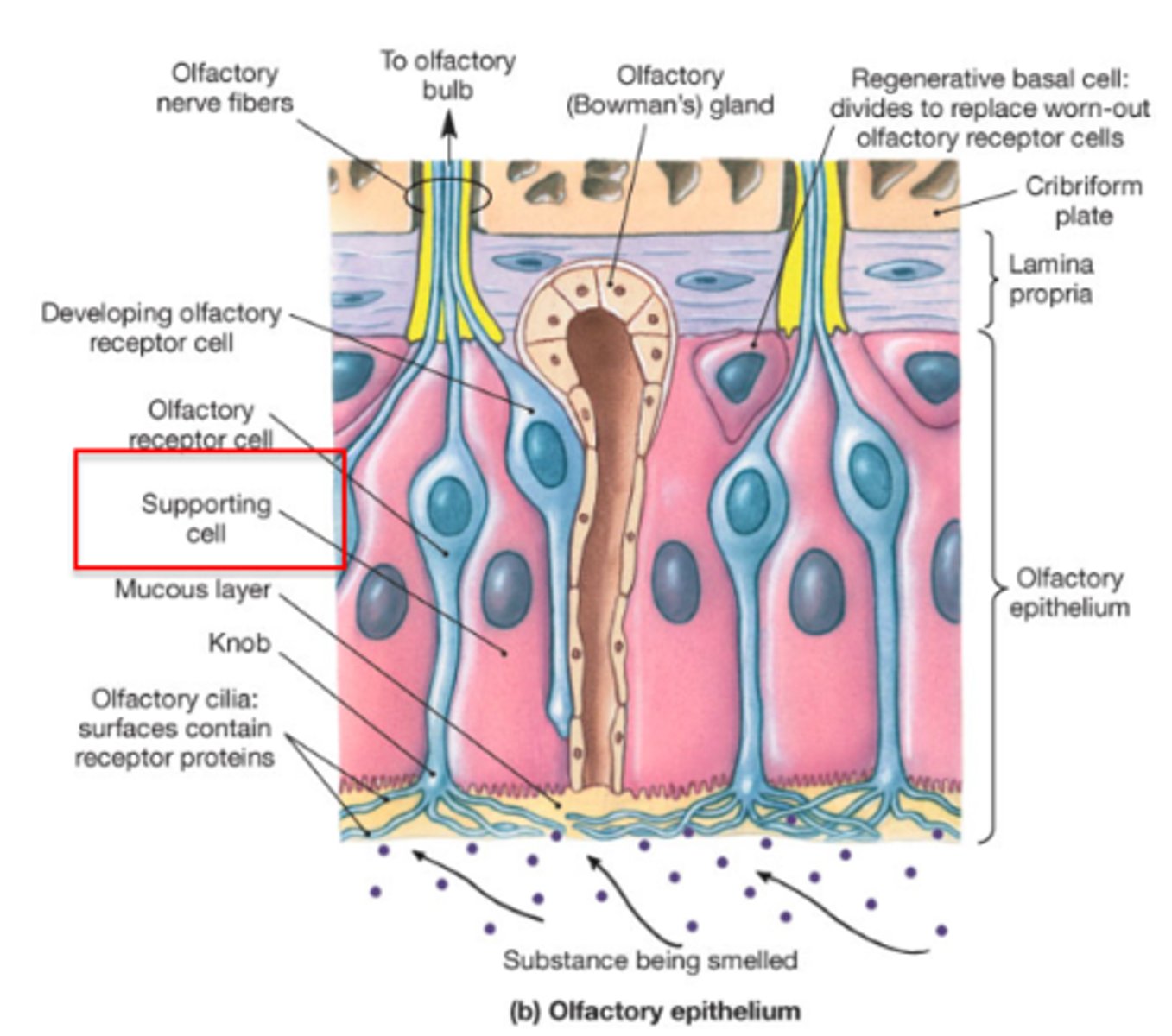
Olfactory nerves
olfactory axons in PNS
olfactory tract
olfactory axons in the CNS
olfactory bulb
the end of the olfactory tract
circumvallate papillae
large papillae at the rear of tongue, associated with taste buds
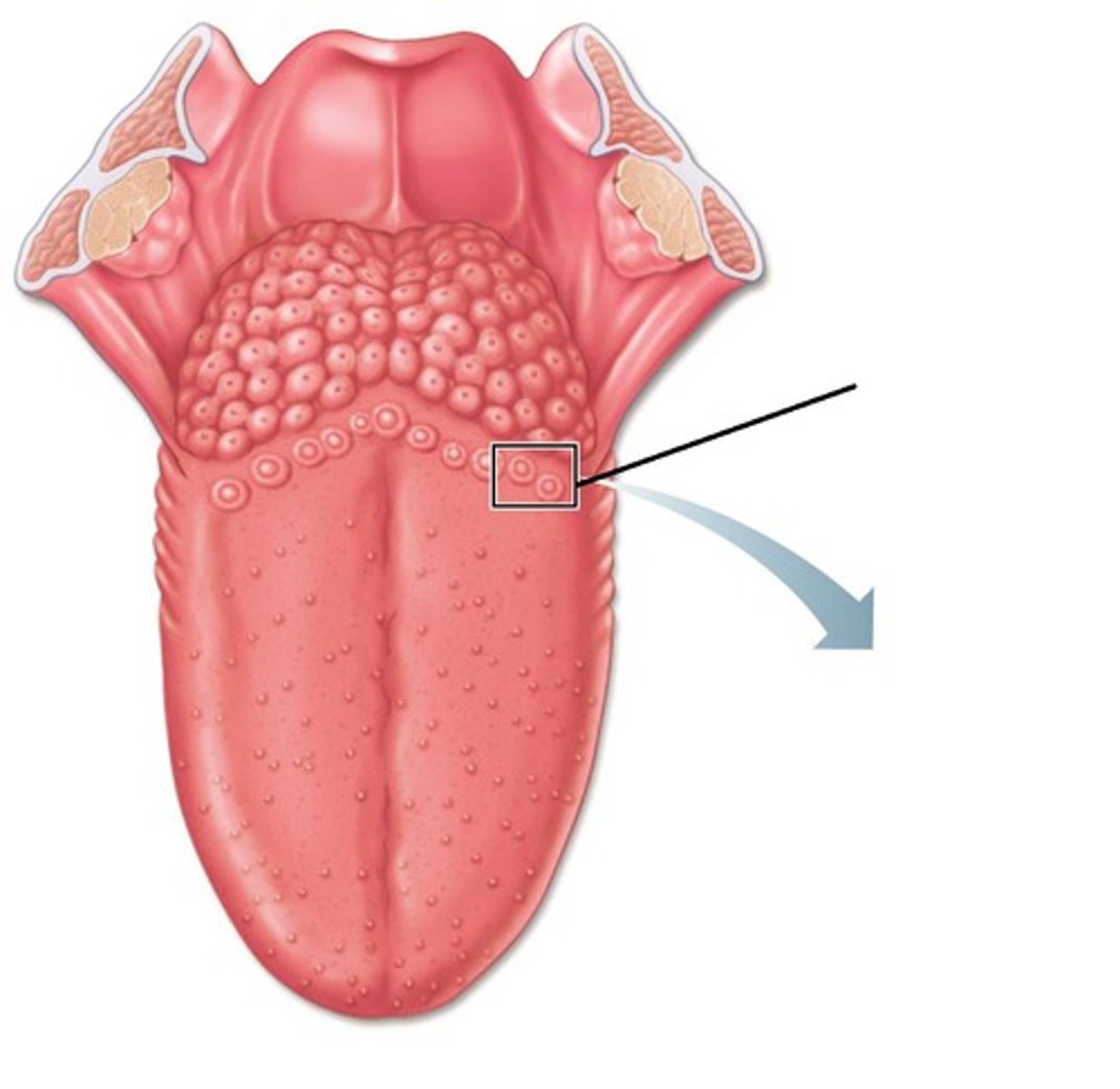
fungiform papillae
scattered over tongue, concentrated at tips and lateral sides, look like a mushroom
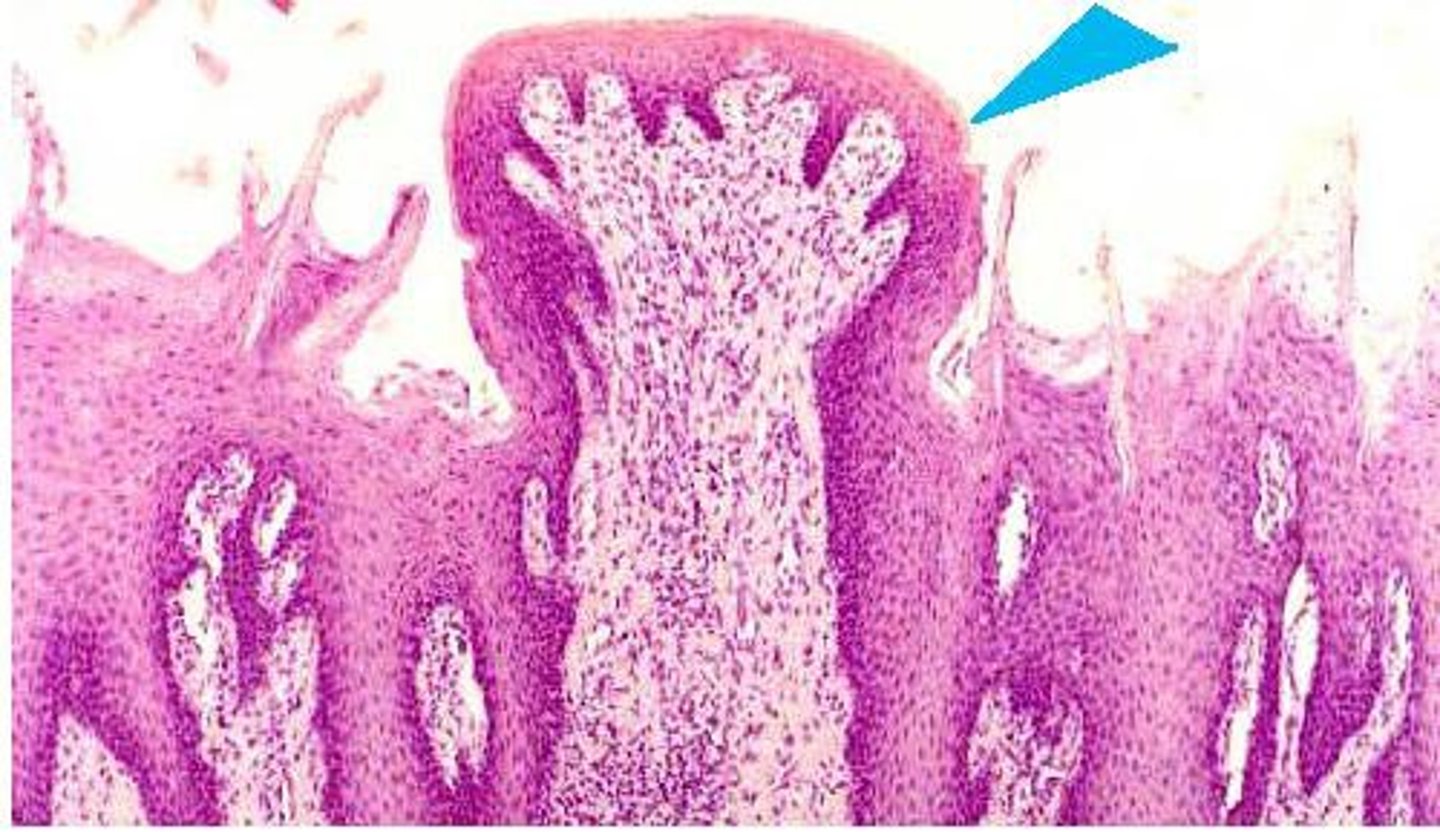
filiform papillae
no taste buds, detect texture
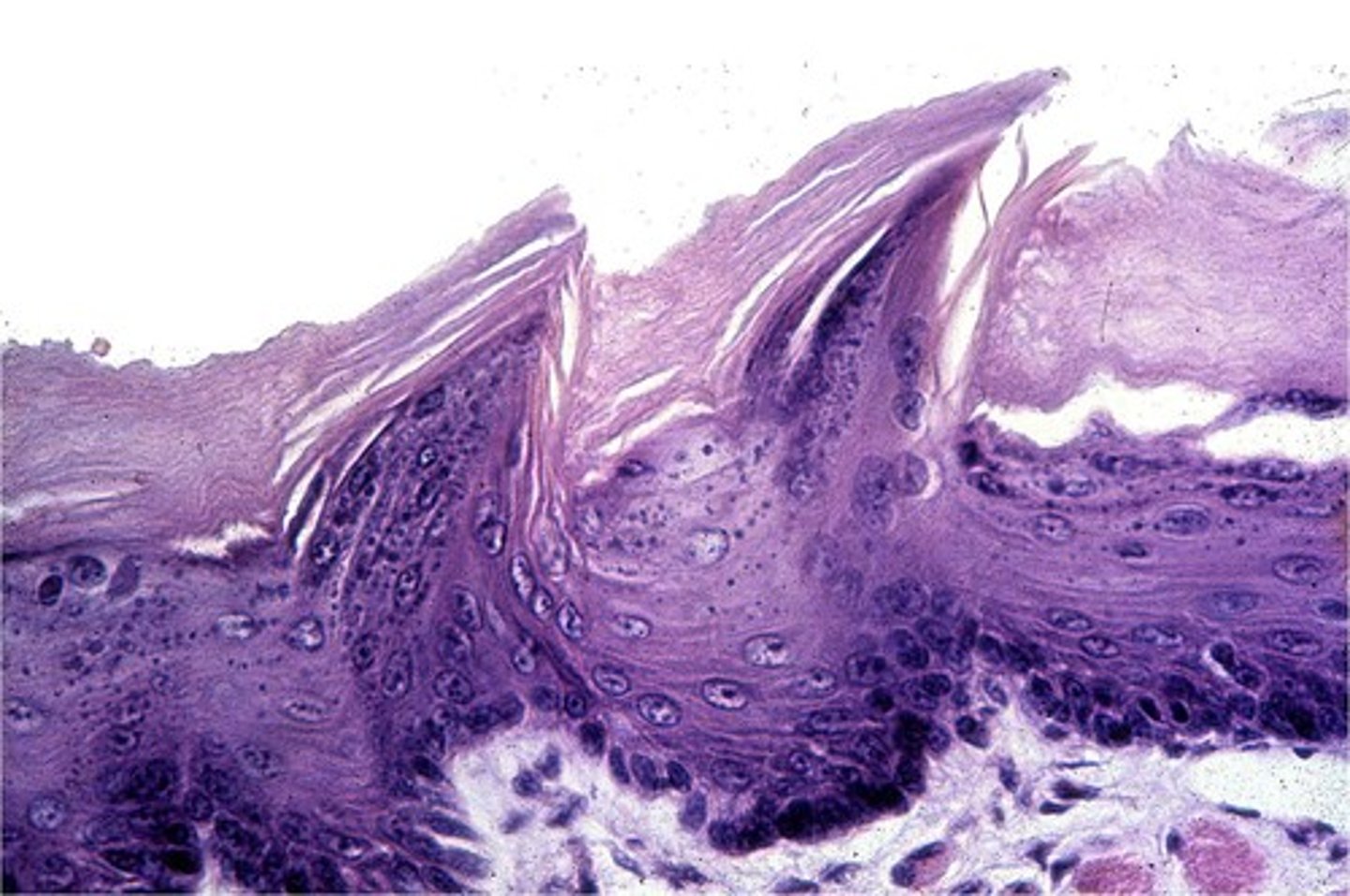
foliate papillae
all over tongue, concentrated on the lateral sides
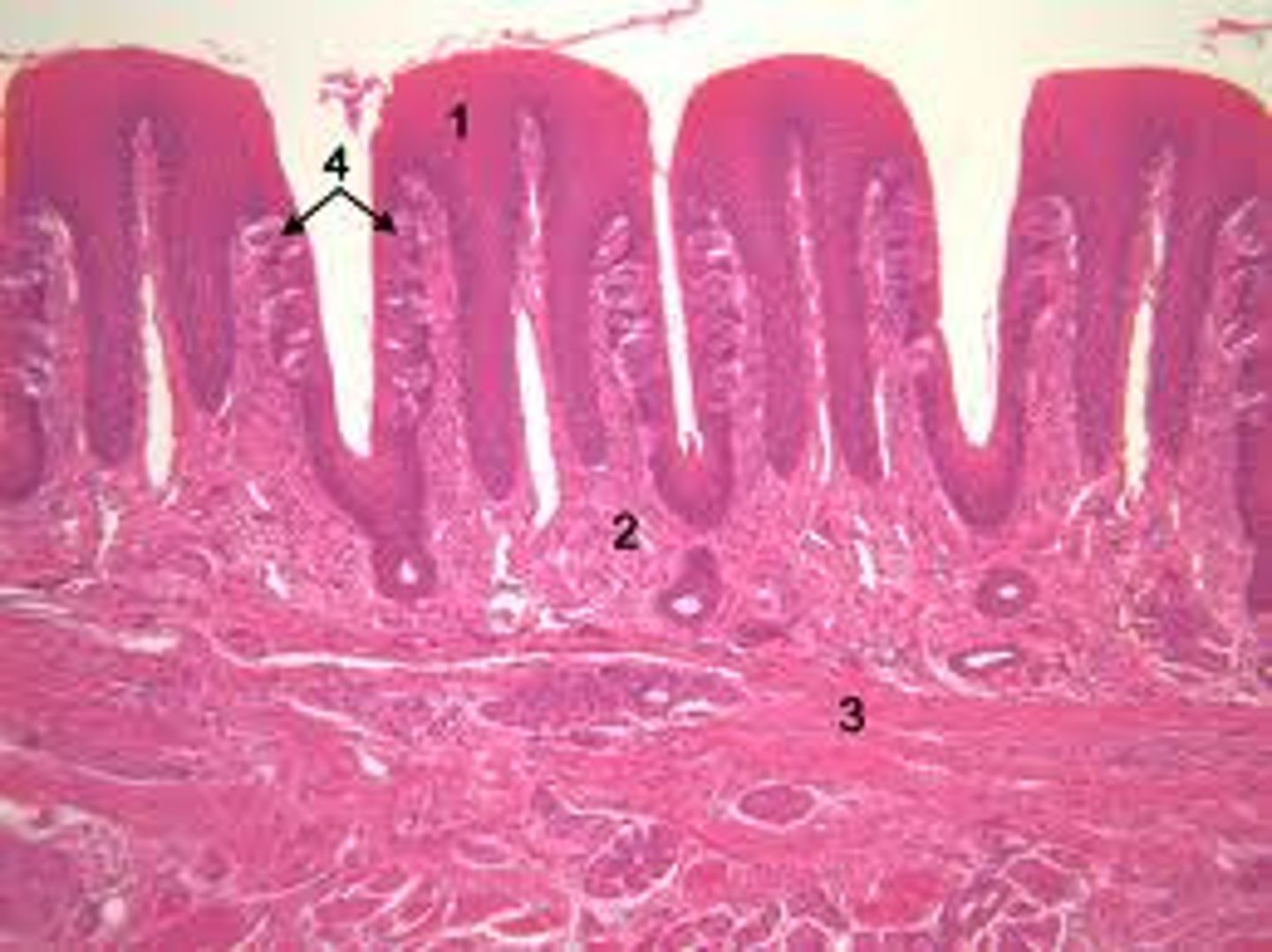
what are the five primary tastants?
salty, sweet, bitter, sour, umami, water
taste pore
opening in taste bud
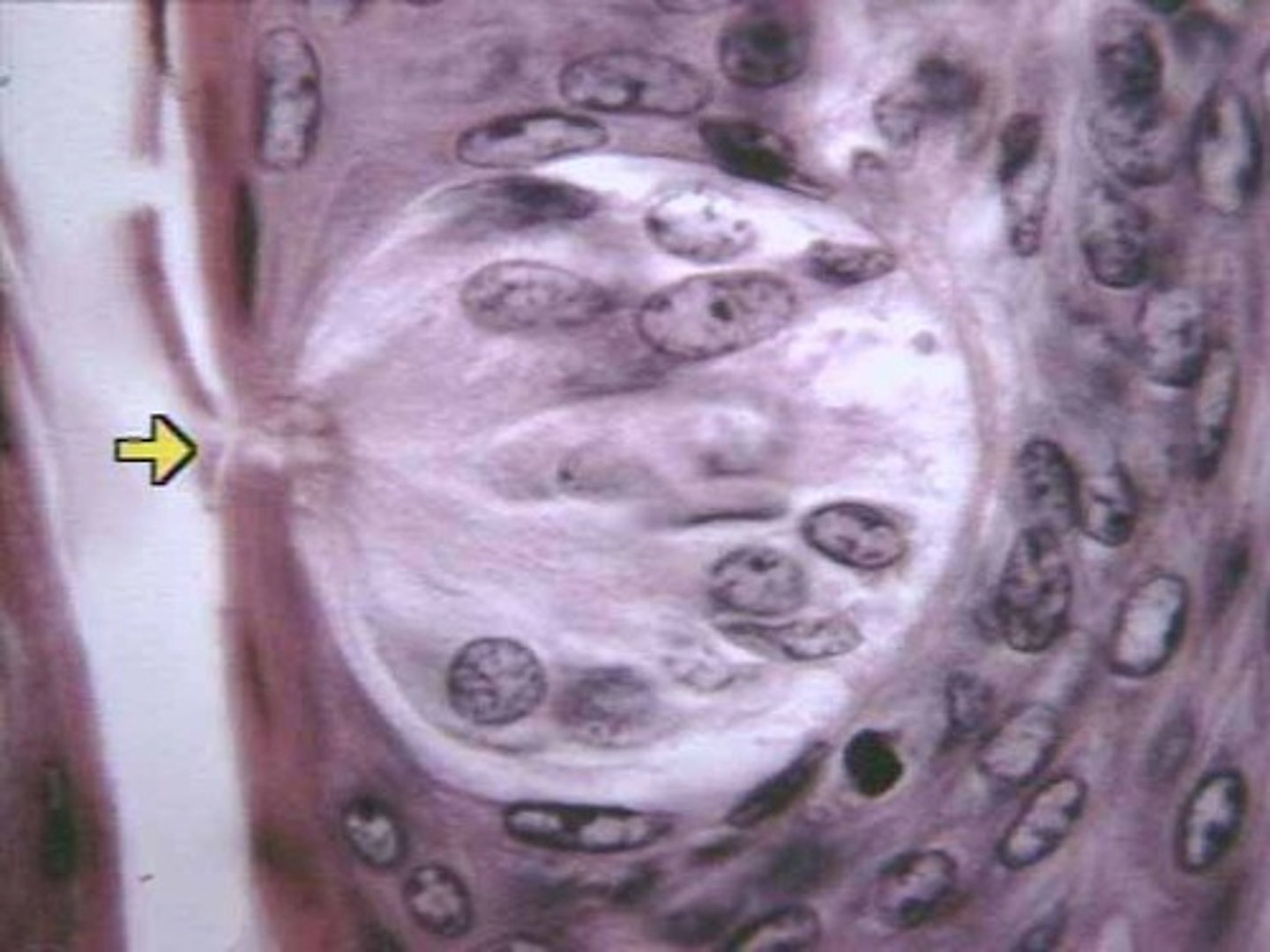
gustatory receptor cells
sensory cells in the taste bud that transduce the chemical stimuli of gustation
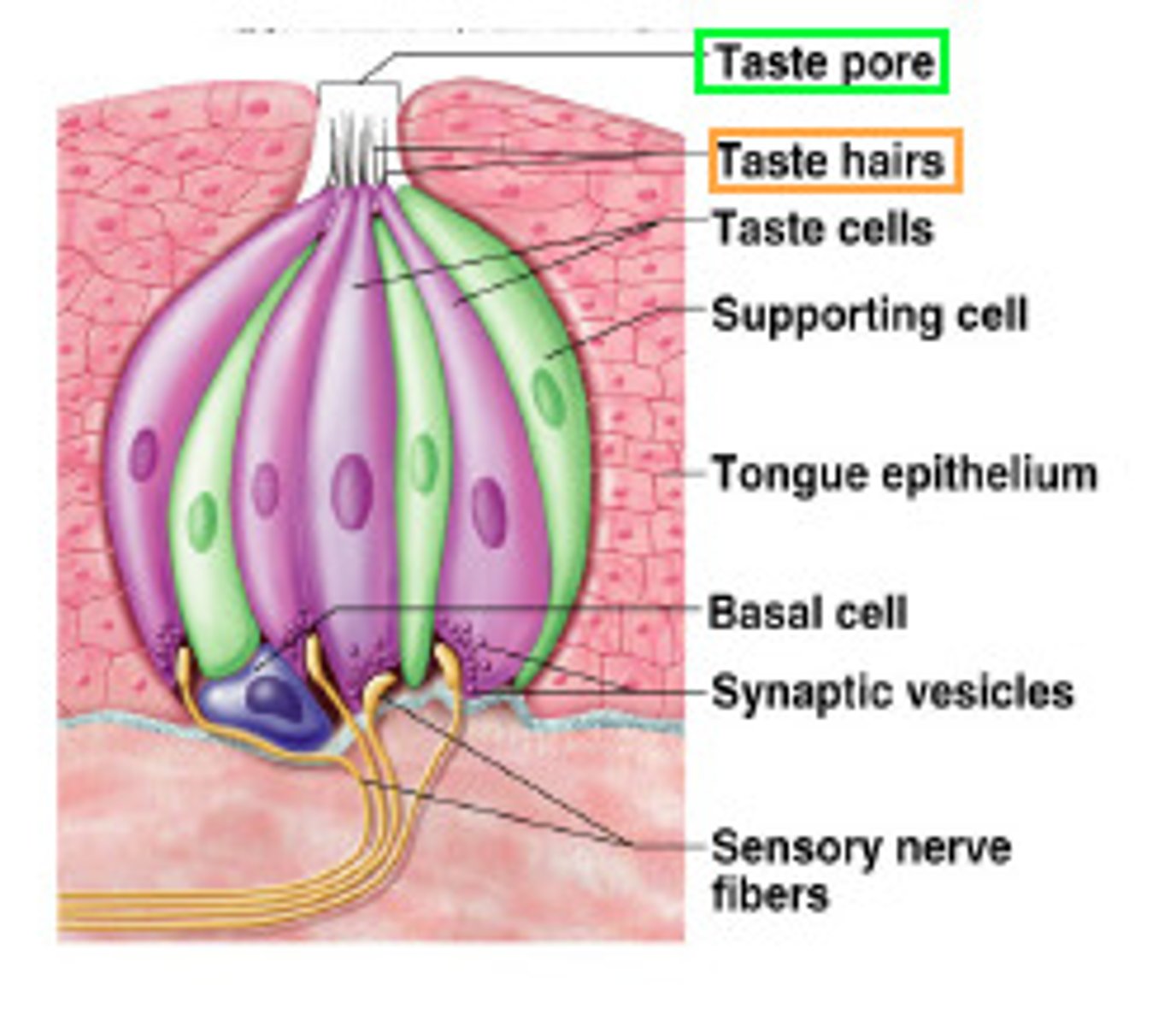
gustatory hairs
increase surface area of taste pore
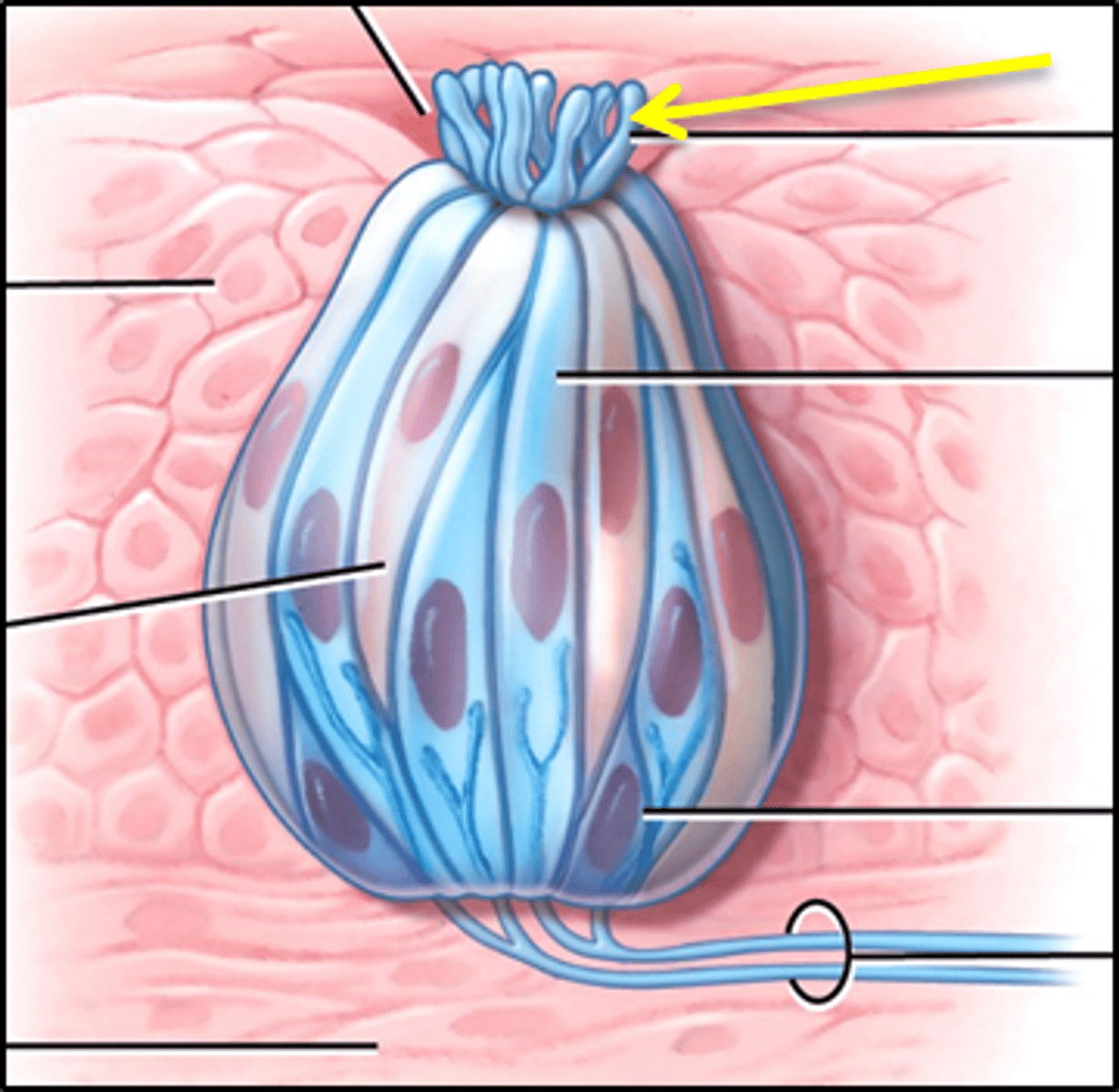
bitter
concentrated at the rear of tongue, alkaloids, hydroxyls
sour
concentrated on lateral sides of tongues, respond to acids
salty
monovalent metallic cations - lateral sides of tongue
sweet
organic molecules, concentrated at tip
umami
glutamate, savory
olfactory epithelium
a thin layer of tissue, within the nasal cavity, that contains the receptors for smell
